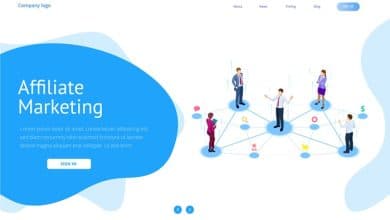
Ever wondered why some industrial suppliers always seem to be the first choice for buyers, even when their products aren’t necessarily cheaper or flashier? The answer isn’t luck; it’s visibility. Today, industrial buyers don’t wait for sales calls or brochures. They search online, compare options, and make decisions based on what they find.
If your business isn’t showing up in those searches, you’re losing leads before you even know it. That’s where industrial SEO comes in. It ensures the right people find you at the right time, builds trust, and helps your business stay competitive in a digital-first market.
Here, we’ll explore why industrial SEO has become indispensable for businesses today.
Why Industrial SEO Matters
Here are the valid reasons why industrial SEO has become a game-changer for businesses in today’s digital market:
1. Industrial Buyers Are Searching Online
Today, industrial buyers are more informed and independent. Studies show that over 70% of B2B buyers begin their purchasing journey with online research. They don’t wait for sales calls; they search for solutions, products, and services online.
If your company’s website isn’t optimized for search engines, you risk missing these potential buyers entirely. Industrial SEO ensures that when prospects type queries related to your products or services, your business appears prominently in search results.
Example: A company that manufactures industrial valves might be overlooked if their website doesn’t rank for queries like “high-pressure industrial valves” or “custom industrial valves supplier.”
2. Build Credibility and Authority
In the industrial sector, trust is everything. Clients want to work with suppliers who are knowledgeable and reliable. Appearing in top search results signals authority and credibility.
Industrial SEO involves creating high-quality content, such as blog posts, case studies, and whitepapers, that address your audience’s challenges. This not only improves rankings but also positions your brand as a thought leader. In fact, nine out of ten B2B buyers report that online content has a moderate to major effect on their purchasing decisions, showing just how influential content-driven SEO can be.
3. Generate High-Quality Leads
Unlike B2C markets where traffic volume is often the goal, industrial businesses benefit more from high-quality leads. Industrial SEO focuses on targeting buyers with specific intent. By optimizing for long-tail keywords like “custom CNC machining services for aerospace,” you attract visitors who are more likely to convert into clients.
The result? Fewer random website visitors and more qualified inquiries that drive revenue.
4. Stay Ahead of the Competition
Many industrial companies still rely on traditional sales methods or word-of-mouth referrals. This creates a huge opportunity for those who invest in digital marketing.
By implementing industrial SEO strategies, your business can appear ahead of competitors in search engine results. This visibility is crucial because buyers often associate top-ranking websites with industry leadership.
Tip: Conduct a competitive SEO analysis to identify gaps in your competitors’ strategies and capitalize on them.
5. Support a Long-Term Marketing Strategy
One of the biggest advantages of industrial SEO is its long-term impact. Unlike paid advertising, which stops delivering results once the budget ends, SEO builds lasting online visibility. Over time, a well-optimized website becomes a reliable source of inbound leads, reducing dependency on outbound sales efforts.
Industrial SEO works hand in hand with content marketing, social media, and email campaigns to create a holistic digital strategy that drives sustainable growth.
6. Improve User Experience and Website Performance
SEO is not just about keywords; it’s about creating a website that users and search engines love. Industrial SEO involves optimizing your website’s structure, navigation, and page speed. A well-designed site enhances the buyer’s journey, making it easier for visitors to find products, download technical specs, or request a quote.
Search engines reward websites that provide a seamless experience with higher rankings, which means better visibility for your business.
7. Measurable Results and ROI
One of the biggest advantages of industrial SEO is that it’s measurable. Tools like Google Analytics and SEMrush allow businesses to track keyword rankings, website traffic, and conversion rates.
With the right tracking in place, you can determine which keywords and content pieces are driving leads and adjust your strategy accordingly. This data-driven approach ensures that every effort contributes to tangible business growth.
Key Industrial SEO Strategies to Implement
To fully leverage industrial SEO, businesses should focus on these essential strategies:
- Keyword Research: Identify the specific terms industrial buyers use to find products and services. Include long-tail and technical keywords.
- On-Page Optimization: Ensure title tags, meta descriptions, headers, and content reflect targeted keywords while maintaining readability.
- Technical SEO: Optimize site speed, mobile responsiveness, URL structure, and XML sitemaps. Industrial buyers expect fast-loading and easy-to-navigate websites.
- Content Marketing: Produce high-quality content like blog posts, product guides, case studies, and whitepapers tailored to industrial audiences.
- Backlink Building: Acquire backlinks from reputable industrial directories, industry publications, and trade associations to boost authority.
- Local SEO: If your business serves specific regions, optimize for local searches, Google My Business, and local directories.
Common Mistakes to Avoid
Even experienced industrial businesses can stumble in SEO. Some common mistakes include:
- Ignoring Mobile Optimization: Many buyers research on tablets or phones; a non-responsive site hurts both rankings and user experience.
- Focusing Only on Traffic: High traffic doesn’t guarantee leads; target buyers with strong intent instead.
- Neglecting Technical SEO: Broken links, slow pages, or poor site structure can undermine your entire strategy.
- Duplicate Content: Avoid copying product descriptions from manufacturers or suppliers; search engines penalize duplicate content.
Conclusion
As we can see, Industrial SEO is non-negotiable in 2025. It connects industrial businesses with informed buyers, builds credibility, drives high-quality leads, and supports long-term growth.
Here’s the thing: companies that embrace industrial SEO today will have a significant advantage over competitors still relying solely on traditional methods. In a digital-first market, visibility and authority are key to staying competitive.
If your goal is sustainable growth, better lead quality, and a stronger market presence, industrial SEO should be at the heart of your marketing strategy.




